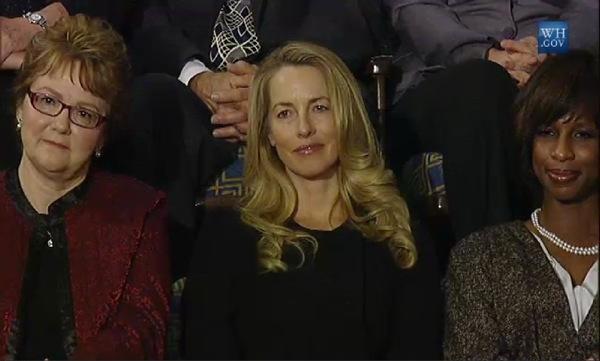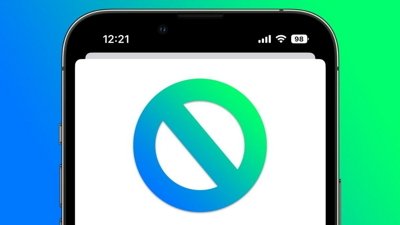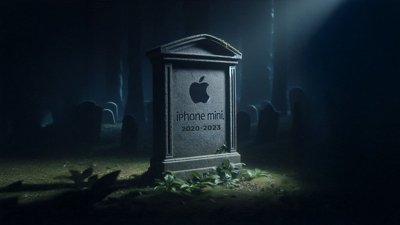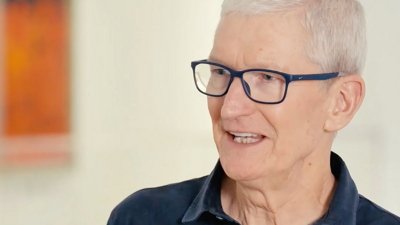While late Apple co-founder Steve Jobs never brought public attention to his philanthropic efforts, he and his family have been giving money away anonymously for more than 20 years.
The rise of anonymous giving in Silicon Valley was detailed on Friday by The New York Times, with a particular focus on Laurene Powell Jobs, the widow of Apple's former CEO. She also participated in a rare interview for a profile that was published last week, discussing her agendas in education, global conservation, nutrition, and immigration policy.
"We're really careful about amplifying the great work of others in every way that we can, and we don't like attaching our names to things," Powell Jobs said.
Her organization, Emerson Collective, is structured like a small business and is set up as an LLC rather than a tax-exempt 501©(3). That gives her the ability to make grants, investments and political donations without publicly reporting them.
Powell Jobs told the Times that she and her organization value the ability to remain anonymous, as well as "nimble and flexible and responsive" in giving.
It was the same newspaper that caused a controversy in 2011, when reporter Andrew Ross Sorkin wrote a piece entitled "The Mystery of Steve Jobs's Public Giving." That piece questioned why there was "no public record" of Jobs donating his money to charity.
That prompted U2 lead singer Bono, who is a friend of Jobs, to pen an op-ed noting that Jobs's contributions to fight AIDS in Africa were "invaluable." Bono is the founder of (Product)RED, a charity aimed at battling AIDS that Apple has supported with various products since 2006.
Bono revealed that Apple had been the largest contributor to the Global Fund to Fight AIDS, and noted that the company has given tens of millions of dollars toward H.I.V. testing, treatment and counseling.
Last year, current Apple CEO Tim Cook also noted a number of private philanthropic efforts undertaken by Jobs during his life. Among those was a $50 million donation for Stanford hospitals, half of which paid for a new main building, while the rest was used to build a new children's hospital.
But despite his philanthropic efforts, Jobs remained intensely private, and even refused to discuss his giving with biographer Walter Isaacson before his death. Jobs also refused to participate in "The Giving Pledge," a campaign started by billionaires Bill Gates and Warren Buffett that asks rich people in American to donate most of their money to philanthropic causes.
Since the death of her husband, Powell Jobs has taken a more public role in support of her causes. In January, she launched a website advocating the "Dream Act" for immigration reform, and in April she participated in an interview with NBC's Rock Center for the same cause. Last year she also joined the governing board at Stanford University, she serves on the White House Council for Community Solutions, and she also serves as president of the after-school program College Track, which she founded in 1997.
 Sam Oliver
Sam Oliver







-m.jpg)






 Marko Zivkovic
Marko Zivkovic
 Andrew O'Hara
Andrew O'Hara
 Amber Neely
Amber Neely
 William Gallagher
William Gallagher
 Christine McKee
Christine McKee
 Andrew Orr
Andrew Orr

 Sponsored Content
Sponsored Content








146 Comments
I'm actually against this anonymous donating. I understand their position on it, and respect that, but I think the greater good is for those with celebrity status in society to set an example. I believe the greater good would be to donate openly and encourage others follow suit either in money and/or time. Just by their actions celebrities can get others to react but when you're silent the totality of the effort will be muted. Just because you are donating openly or setting up charities it doesn't mean you are looking for accolades. The better move is to not care what others will ultimately think for against your motives and actions.
Why is it that the media assumes that you are not giving because it is not a public spectacle. Kudos to the Jobs family for the work he did both public and especially the private work that he sought no recognition for. Most well to do folks would have wanted their name on the hospital(s). Not Steve. He saw the real purpose - to help people in need, not as a PR stunt.
I'm actually against this anonymous donating. I understand their position on it, and respect that, but I think the greater good is for those with celebrity status in society to set an example. I believe the greater good would be to donate openly and encourage others follow suit either in money and/or time. Just by their actions celebrities can get others to react but when you're silent the totality of the effort will be muted.
I understand your point, but if I were Jobs, I would have done exactly the same thing.
It's the creation of Apple that makes Steve Jobs a hero, the simple giving away of money is nothing compared to that, no matter how much.
I mean, think how much thought and effort was needed to create Apple: strategic decision making and product instincts, etc vs. just signing a check.
The greater good is that individual freedom is more important than a collectivism.